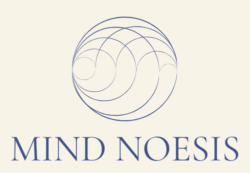Let’s debunk a common misconception. Solitude isn’t a bad thing. In a world where connection is celebrated and solitude is often misunderstood, the idea of being alone can feel intimidating and spark fear inside of us.
Humans are indeed “social animals,” and from ancient times, we had to come together to survive and build societies. Yet, solitude isn’t loneliness, and this is where the majority of people can’t differentiate the two. Being alone is an opportunity for self-development, a road to mindfulness, and a chance to cultivate a deeper awareness of who you truly are.

The Beauty of Solitude
Solitude offers us something the world nowadays rarely does: stillness. We find space to reflect, heal, and grow in this stillness. In moments of quiet, we connect with our inner selves, uncovering truths that often go unnoticed amidst the noise of daily life. We can talk to ourselves, and hear our thoughts, and even though at times it may be unpleasant, it’s the only way to know and understand yourself on a deeper level. Solitude allows us to step back, breathe, and realign our mindset with our deeper purpose.
Why We Fear Being Alone
Many people avoid solitude because it forces them to confront their thoughts and emotions. The discomfort of sitting with oneself often reveals unprocessed feelings or insecurities. However, this confrontation isn’t something to fear, it’s a doorway to awareness and growth. By facing, understanding, and incorporating our inner and subconscious world, we learn to navigate life with more clarity and resilience.
The Role of Mindfulness in Solitude
Mindfulness transforms solitude from a state of being alone into an enriching experience. When we practice mindfulness during solitude, we engage fully with the present moment, letting go of distractions and tuning into ourselves for knowledge. Meditation can be a powerful tool for this, guiding us to observe our thoughts without judgment and embrace the stillness.
How to Embrace Solitude
- Start Small:
Begin with short periods of intentional solitude each day. Even 10 minutes of quiet reflection can have a profound impact on your mindset. - Create a Solitude Ritual:
Find a practice that feels grounding, such as journaling, meditating, or walking in nature. These activities can help you ease into the experience of being alone. - Detach from Technology:
Disconnecting from screens allows you to truly be present with yourself. Use this time to listen to your thoughts, breathe, and reflect. - Face Your Thoughts with Compassion:
When uncomfortable feelings arise, welcome them with kindness. Ask yourself what they are trying to teach you, rather than avoiding them. - Celebrate Your Independence:
Recognize that solitude isn’t just about being alone, it’s about discovering your strength and independence. - Celebrate the time you spend nurturing your inner self.
Recognize that solitude isn’t just about being alone, it’s about discovering your strength and independence. Celebrate the time you spend nurturing your inner self.
The Benefits of Solitude
- Clarity and Insight:
Without external distractions, you gain clarity on your goals, desires, and values. Solitude enhances self-awareness and helps you make more intentional decisions. - Emotional Resilience:
Spending time alone strengthens your ability to process emotions and cope with challenges. It builds a foundation of inner stability. - Creativity:
Solitude fuels creativity. In the quiet, your mind has the freedom to explore ideas and connect the dots in new ways. - Connection to Self:
By spending time with yourself, you deepen your understanding of who you are, independent of societal roles or expectations.
Finding Strength in Solitude
The art of being alone lies in the mindset you bring to it. Instead of viewing solitude as emptiness, see it as an opportunity for fullness—a time to reconnect with yourself and the present moment. It’s in this space that you discover your true strength, untethered by the opinions or expectations of others.
Embrace the Gift of Solitude
In solitude, we meet ourselves. We uncover our fears, desires, and dreams. We learn to navigate life with a renewed sense of purpose and clarity. By embracing the art of being alone, we don’t just find strength—we find ourselves.
Remember, solitude isn’t about isolation; it’s about connection—to your inner self, your values, and the life you wish to create. While solitude is essential, balance is key. Embrace moments of connection with others while cherishing your alone time. Both are necessary for a fulfilling life. With mindfulness, meditation, and a willingness to explore, solitude becomes a sanctuary for self-development and growth.




Pingback: How to Start Living Your Life on Your True Path -
Pingback: The Art of Letting Go: How to Leave What You Don’t Need -
Pingback: Why You Should Trust Your Gut: Unlocking Intuition -